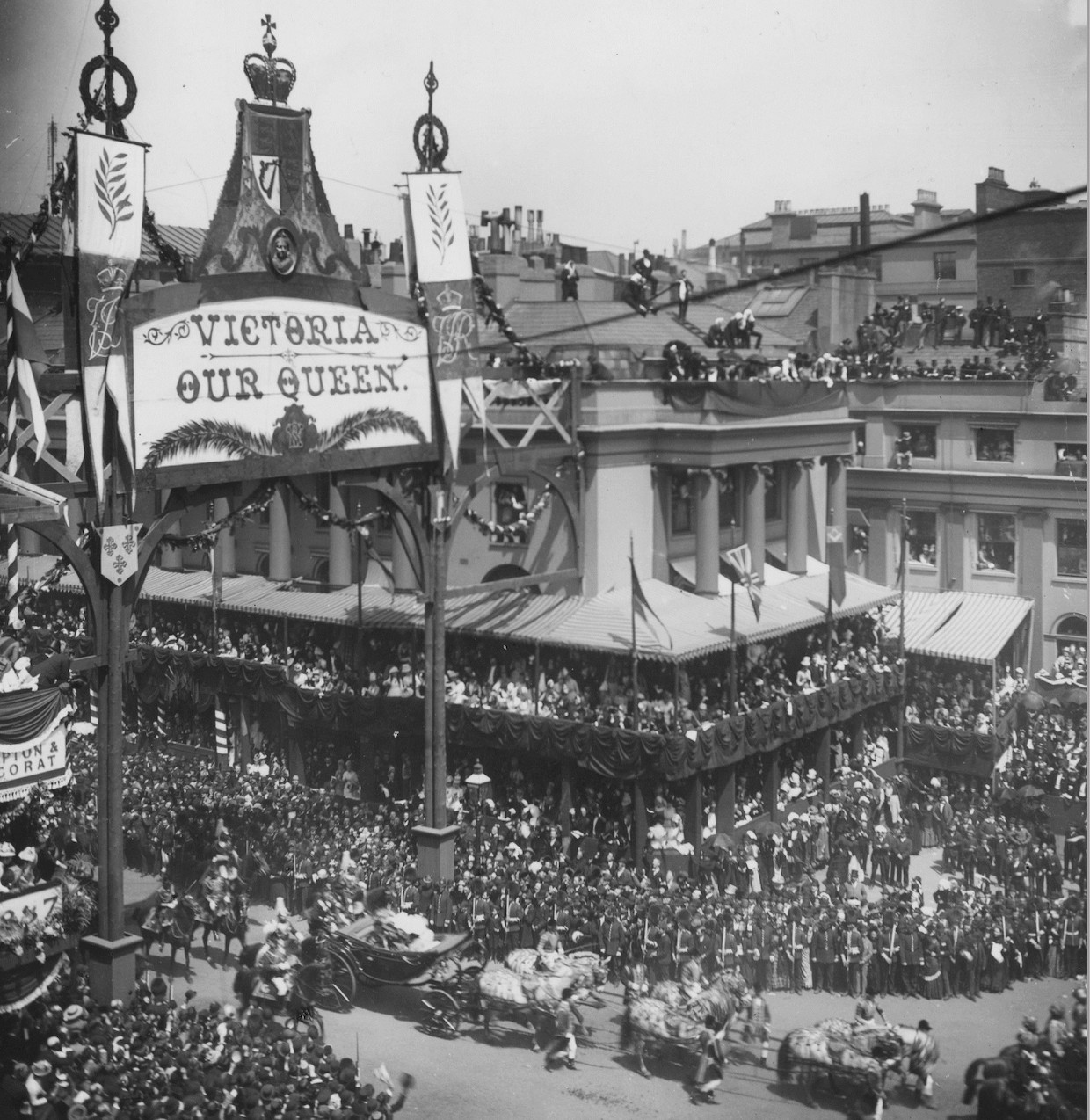The roots of the Royal Family’s public persona.
During the later decades of the 19th century, the British monarchy was fundamentally transformed into the one we know today: ceremonially splendid, but largely powerless in politics. In the early years of Queen Victoria’s reign it still possessed some political power, and its ceremonial was rather limited and meagre. But Prince Albert’s death in 1861 set in train a remarkable reinvention of the monarchy. This process is also interesting because it tells us much about Victoria’s relations with two of her most famous prime ministers: William Gladstone and Benjamin Disraeli.
When her beloved husband Albert died, Victoria was utterly devastated and withdrew into seclusion. She refused to undertake ceremonial duties and in 1863 protested her “total inability, without serious injury to her health, to perform these functions of her high position which are accompanied by state ceremonials and which necessitate the appearance in full dress in public”. She shut herself away at Windsor, or at Osborne or Balmoral, to such an extent that in 1864 someone pinned a notice to the railings of Buckingham Palace that read: “These extensive premises to be let or sold, the late occupant having retired from business.” Around the same time, it was reported that some “London traders believe the Queen to be insane and that she will never live in London again”.
“There are a score of towns in the north and centre where the republican feeling has been at fever heat”
The longer the Queen remained in seclusion, the more the monarchy was damaged. The constitutional expert Walter Bagehot wrote in 1871 that “the Queen has done almost as much to injure the popularity of the monarchy by her long retirement from public life as the most unworthy of her predecessors did by his profligacy and frivolity”. Between then and 1874, no fewer than 84 republican clubs were founded, prompting the radical Frederic Harrison to observe that “in London and the great cities, the bulk of the working classes are republicans by conviction, unless where they are perfectly indifferent. There are a score of towns in the north and centre where the republican feeling has been at fever heat”.

























